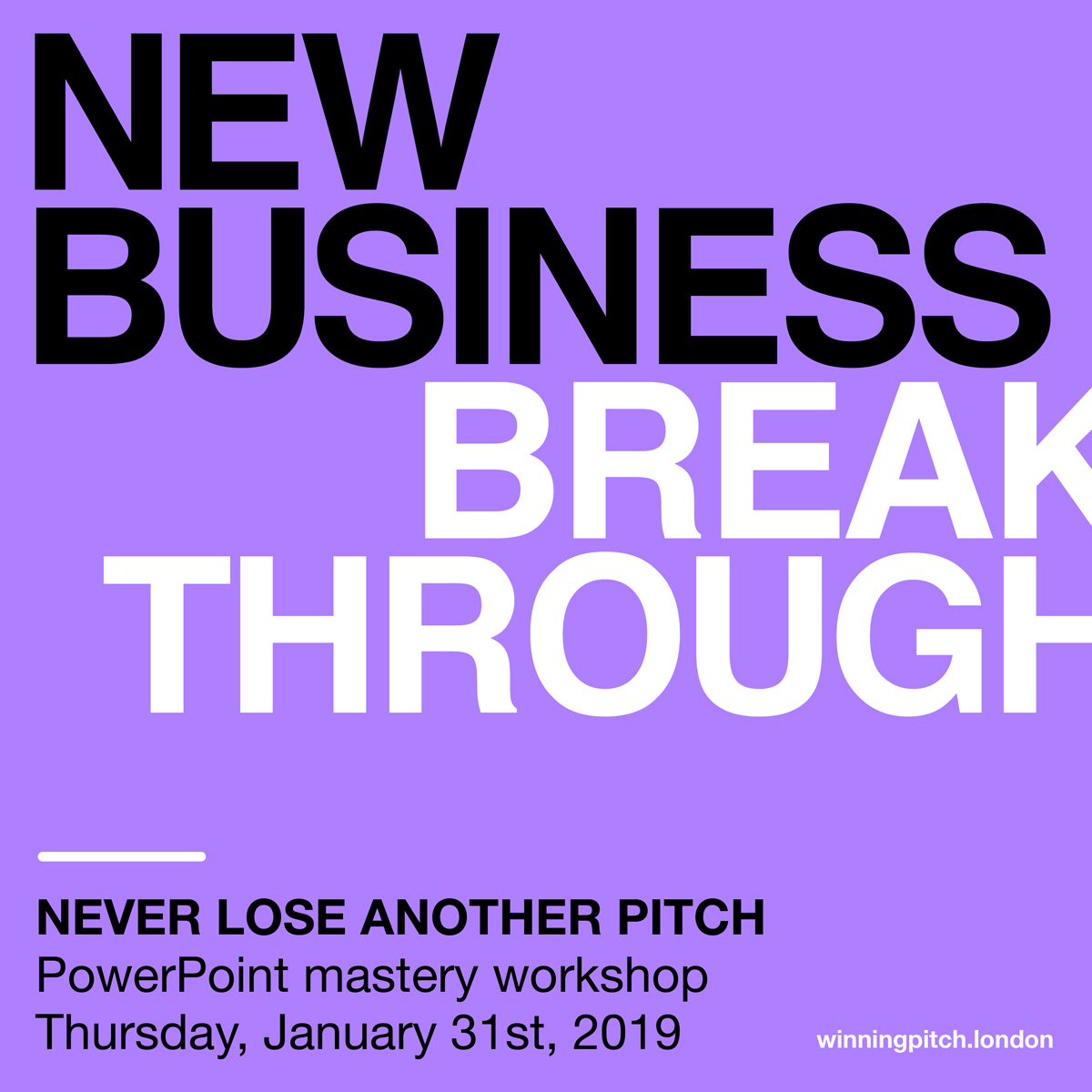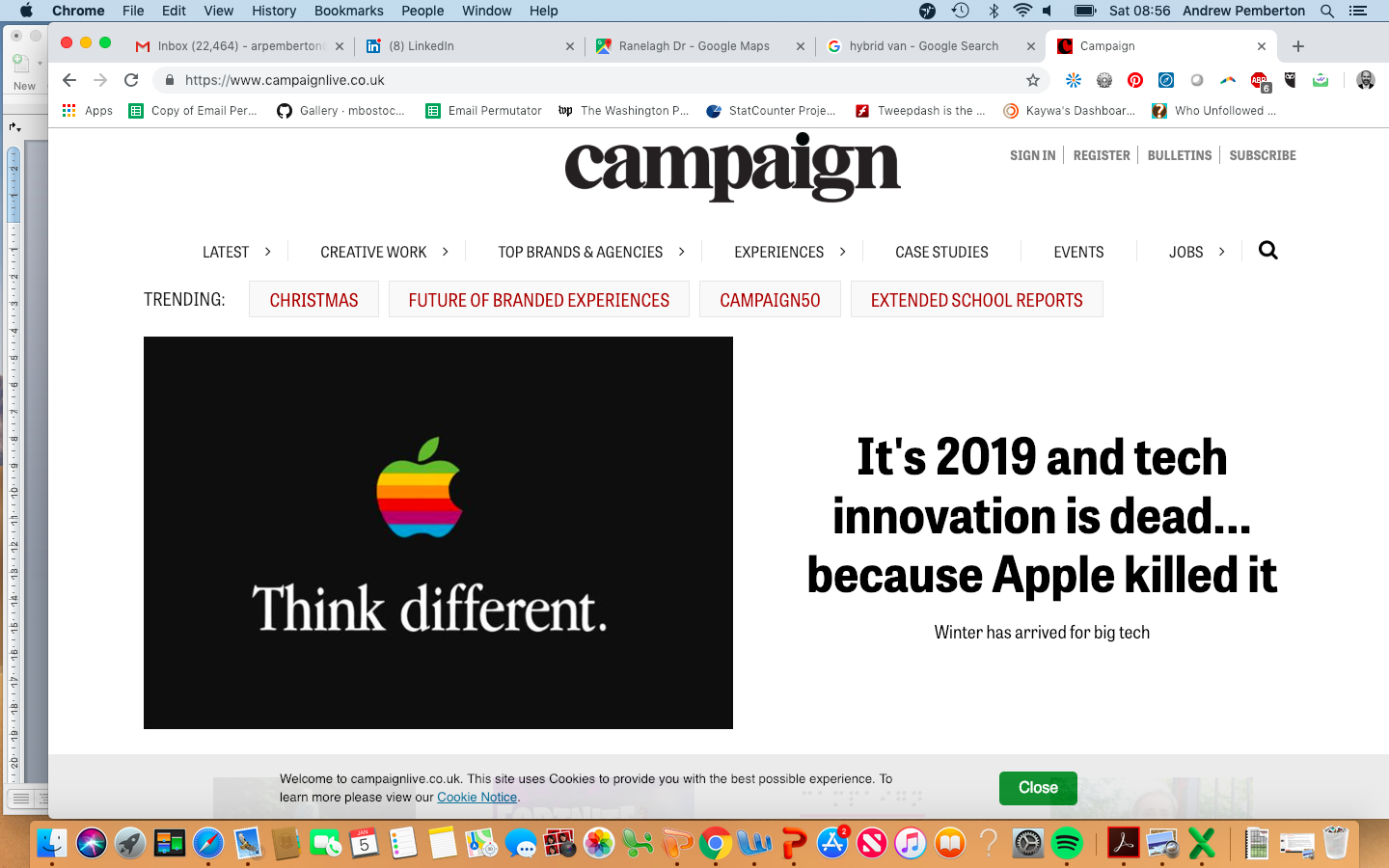2019 is the year of Woke as a business plan
“Never stop questioning…”
As taglines go, it’s pretty lame.
As taglines for an Economist ad – arguably the last word in smart ad copy one liners – it is hellacious. No wonder the great and the good of the ad creative community are up in arms.
Under the line “death of an iconic campaign for The Economist” I read the following comments on LinkedIn this week:
“Aaaaaaaaaaaaaaaaarrrrrrrgggggggghhhh!!!!!! That. Is. F*cking. Horrendous”
“This new stuff is spoon-fed horse manure.”
“Shame on the agency for presenting it. Shame on the client for running with it.”
“Can we all please stop using the horribly cliched “Never Stop ——-“ format for taglines? I’ve seen dozens, they all suck.”
That last one was a head of Brand Strategy at Ogilvy in USA.
The line comes at the end of a TV ad spot that features a young-ish black woman going about her working day noting that one should not take at face value everything the world shoves at you.
The ad closes on that line. It is certainly not a particularly good line. Perhaps one of these would’ve been better:
Great minds like a think.
Would you want to sit next to you at dinner?
In opinion polls, 100% of Economist readers had one.
Those are all lines written for The Economist by ad copywriting legend-in-his-own-lunchtime David Abbott.
The new line is not even close to these classics and will be soon forgotten. The ad agency responsible (who shall remain nameless) have taken a scared cow and turned it into cheese burgers for millennials, say critics.
Most blame data. No one can fault the Economist for trying to tune in to a younger audience, but instead of trying to change their minds about the Economist, the ad is merely trying to find people who might already be sympathetic.
It may be relevant, it could be timely, but the Economist ad – like a lot of data driven advertising- is trying to capture sleeping demand rather than actually attempting to persuade anyone new about how great The Economist is, say critics. No attempt has been made to make it feel exclusive or exciting. Instead The Economist has, presumably deliberately, jettisoned creativity and impact for “relevance” as defined by Google.
This is especially sad because it is the one liners in red under Economist headlines that are the core of the brand. They do a fantastic job of summing up very complicated issues. (And, as an ex magazine editor myself I find it easy to admire the technical craft: a fact followed by an opinion in a crisp line that always supports their core brand value of free trade. The whole package works very, very well.) Data-led advertising is a trend you may or may not approve of. But execution, clearly, still matters.
But there is another, hotter trend on display here.
I believe 2019 is going to be the year of “Woke” as a business plan and this Economist ad is not the only example.
The recently-launched Gilette ad “We believe The Best Men Can Be” is about as Woke – aka alert to injustice in society – as it gets. I won’t spoil it for you, but it does involve racism, violence and #MeToo
Of course there have already been complaints online from Men’s groups claiming they have been immasculated by the commercial, as well the usual nonsense from Russian bots on Twitter.
Manufactured online outrage can easily be ignored but the bots are right about one thing: What Gilette – and The Economist – are clearly saying with these ads is: “We don’t give a f*ck about rural Republicans buying our stuff.”
It’s a long way from Michael Jordan in 1995 claiming “Republicans buy sneakers too.”
All this comes off the back of last year’s big gangsta move in global marketing: the Nike Colin Kaepernick ads, which famously featured the rebel American football player and the Mohammed Ali-esque line: “Believe in something. Even if it means sacrificing everything.”
While Nike’s share price immediately dipped about 4% the day after the ads ran (September 7), sales skyrocketed, adding 31% in sales that Labor Day weekend. By September 24 last year it had generated $6bn in sales.
It was the ad of the year not only in terms of execution but also strategy. Because the truth is while populists and the folks that support them – non-college white men from largely rural areas – may be enjoying the political whip hand at time of writing, but they h lost the culture war some time ago.
US corporations used to find it commercially necessary to appear to lean Republican – think the stuffed shorts of Mad Men– but in the twenty-first century Silicon Valley has changed the game: anyone who wants to make money must appear progressive.
Companies such as Facebook – who are essentially libertarian when it comes to politics – know that to stay in business they must wrap themselves in a blue progressive flag. The fact that Facebook have recently been revealed to be not nearly as cuddly as they pretend, proves the point: their unmasking has caused them no end of problems.
The reason is simple. Urban progressives have all the money. The non college, rural white men who back Trump (and Leave), who have not seen a pay rise in ten years, have less. This is not opinion, it is fact.
If things were otherwize, one assumes, they would not be backing Leave or Trump in the first place.
In this context, Trump and Les Gilets Jaunes do not herald the dawning of a new era, but a dead cat bounce – the final spasm of a beleagured group who became culturally irrelevant some time ago and now sense they are becoming economically irrelevant too. Right now they are trying their damndest not to be politically irrelevant too. Will they succeed? Short term maybe, long term doubtful.
In the UK, non-college white men exited music culture when Oasis split up (their successors Radiohead and Coldplay were famously both educated and posh), and in 2019, it seems, they exited the economy. At the time of writing, it remains to be seen if they will be ignored politically too.
Is that unfair? Inevitable? I don’t know. Is it surprising that business and ad land has started to take notice?
The only surprising thing is that it took this long.
Posted in: Infographic of the day | Leave a Comment





